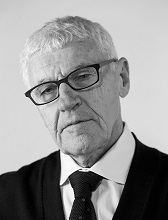
Dr. Kruglanski is a Distinguished University Professor at the University of Maryland. Throughout his career as a social psychologist, his interests have centered on how people form judgments, beliefs, impressions, attitudes and what consequences this has for their interpersonal relations, their interaction in groups and their feelings about various "out groups". In connection with these interests he has formulated a theory of lay epistemics (Kruglanski, 1989) that specified how thought and motivation interface in the formation of subjective knowledge. The work on lay epistemics has branched in several directions the major which were (1) research on epistemic motivations, need for cognitive closure in particular (2) a unified conception of the parameters of human judgment that offers an integrative alternative (known as the "unimodel") to previous theorizing in a variety of social judgment domains (having to do with persuasion, stereotyping, attribution, and statistical reasoning among others), (3) a "motivation as cognition" research program that resulted in the recent theory of goal systems. Kruglanski's interest in motivation has also led to a fruitful collaboration with Tory Higgins on (4) the regulatory mode theory in which people distinguish between two fundamental aspects of self-regulation having to do with "locomotion" (encapsulated in the "just do it" dictum) and "assessment" (representing a concern with "doing the right thing").
Background
University of California, Los Angeles, Ph.D., Psychology
